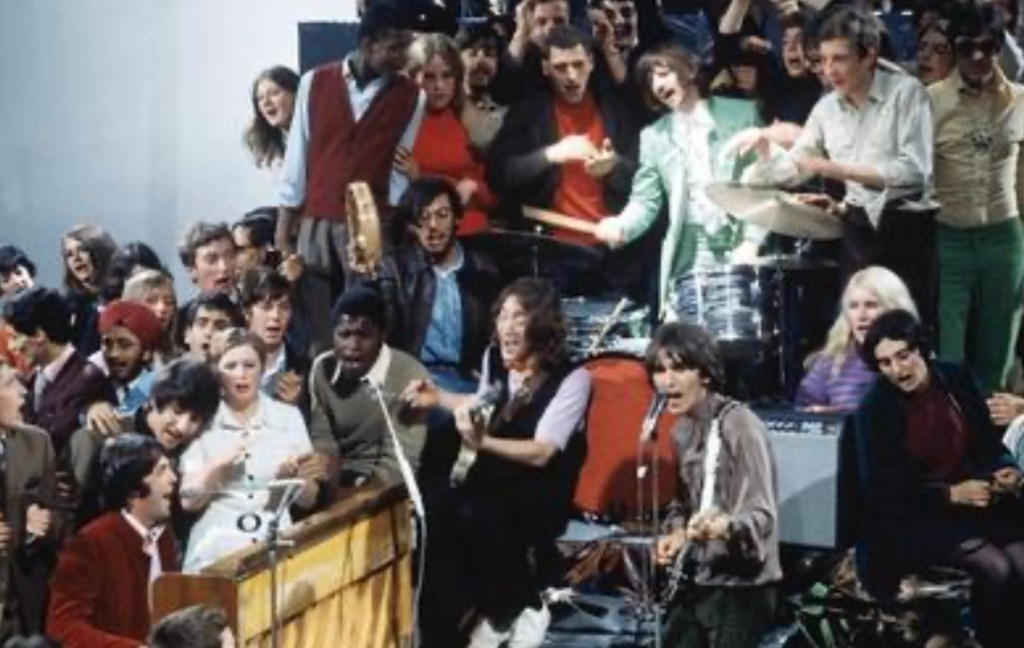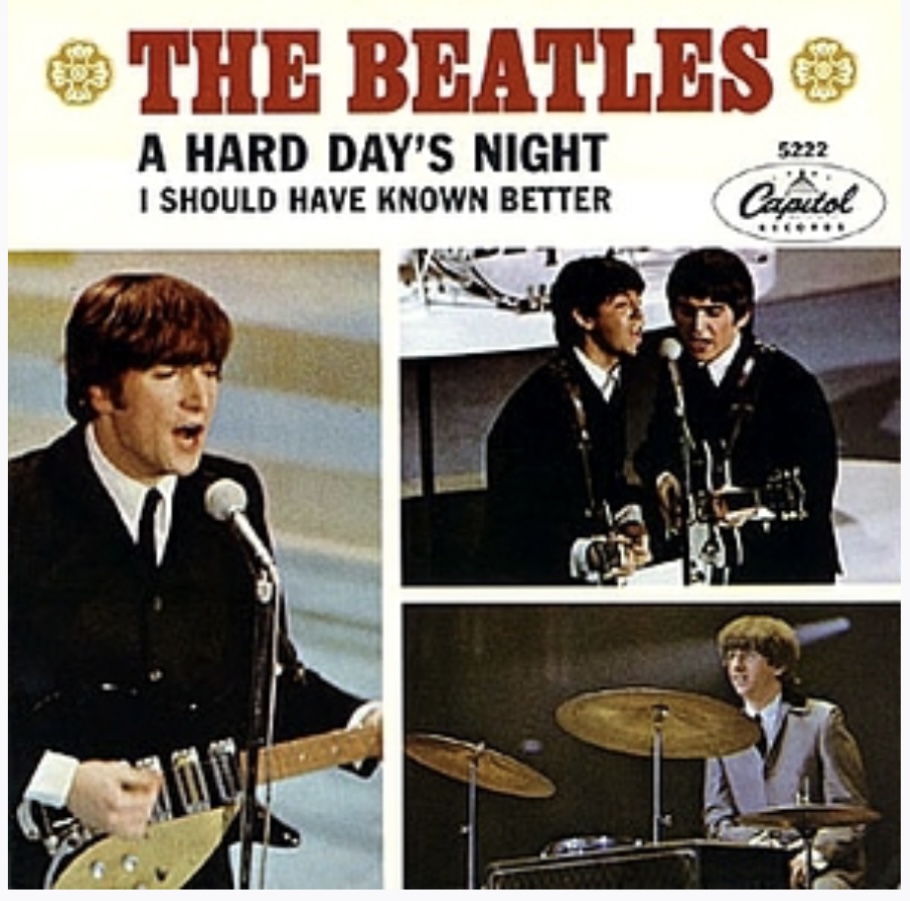When the qualifying process is complete, in about a month, on Mastodon we will start voting on our top twenty favourite records of the 1950s/1960s, placing them in order. Through 190 match-ups, we will create a unique chart, every song a classic.
Here is some background on one of the qualifiers, Hey Jude by the Beatles.
Hey Jude, written by Paul McCartney and credited to the Lennon-McCartney partnership, was released in August 1968. The song was the first Beatles release on their Apple record label.
John Lennon said in 1980, “If you think about it … Yoko’s just come into the picture. He’s saying. ‘Hey, Jude – Hey, John.’ I know I’m sounding like one of those fans who reads things into it, but you can hear it as a song to me. The words ‘Go out and get her’ – subconsciously he was saying, Go ahead, leave me. On a conscious level, he didn’t want me to go ahead.”
Paul McCartney added in 1997, “I started with the idea “Hey Jules,” which was Julian (Lennon), don’t make it bad, take a sad song and make it better. Hey, try and deal with this terrible thing. I knew it was not going to be easy for him. I always feel sorry for kids in divorces.”
Another qualifier, Then He Kissed Me by The Crystals
Then He Kissed Me was written by Phil Spector, Ellie Greenwich and Jeff Barry. The song, recorded by The Crystals, was released in July 1963 and quickly became an international hit. The lead vocal was sung by Dolores “LaLa” Brooks, while Jack Nitzsche provided the Wall of Sound arrangement.
Dolores “LaLa” Brooks, the second youngest of eleven children, enjoyed a long career in music, writing, recording and performing with a number of leading artists including Bobby Womack and Isaac Hayes. Now aged 76, she is still performing.
The Dock of the Bay by Otis Redding
The Dock of the Bay was co-written by Otis Redding and guitarist Steve Cropper. Redding recorded the song twice in 1967, including just three days before his death in a plane crash on December 10, 1967. The Dock of the Bay was released in 1968 and became the first posthumous #1 single in America.
In a September 1990 interview Steve Cropper said, “Otis was one of those guys who had 100 ideas. He had been in San Francisco doing The Fillmore. And the story that I got, he was renting a boathouse, or stayed at a boathouse or something, and that’s where he got the idea of the ships coming in the bay there. And that’s about all he had: ‘I watch the ships come in and I watch them roll away again.’ I just took that… and I finished the lyrics. If you listen to the songs I collaborated on with Otis, most of the lyrics are about him. Dock of the Bay was exactly that: ‘I left my home in Georgia, headed for the Frisco Bay’ was all about him going out to San Francisco to perform.”
Hit the Road Jack by Ray Charles
Hit the Road Jack was written by Percy Mayfield and recorded by Ray Charles with Margie Hendrix providing the female vocals. Initially, Mayfield sent an a cappella demo to music executive Art Rupe who played it to Charles.
Ray Charles’ recording reached number one on the Billboard Hot 100 on Monday, October 9, 1961. The song also resided at top of the R&B chart for five weeks becoming Charles’ sixth number one on that chart.
The Chantels released an answer song, Well, I Told You, which also entered the charts.
A Hard Day’s Night by the Beatles
A Hard Day’s Night, credited to Lennon-McCartney, was primarily written by John Lennon. The song was released on the film soundtrack of the same name in 1964.
The origins of A Hard Day’s Night as a title vary according to your source. In 1964, Ringo Starr said, “We went to do a job, and we’d worked all day and we happened to work all night. I came up still thinking it was day I suppose, and I said, ‘It’s been a hard day …’ and I looked around and saw it was dark so I said, ‘… night!’
In 1980, John Lennon said, “I was going home in the car and Dick Lester (director of the movie) suggested the title, ‘Hard Day’s Night’ from something Ringo had said. I had used it in ‘In His Own Write’ (a book Lennon was writing) but it was an off-the-cuff remark by Ringo. You know, one of those malapropisms. A Ringo-ism, where he said it not to be funny … just said it. So Dick Lester said, ‘We are going to use that title.’”
In 1994, Paul McCartney said, “The title was Ringo’s. We’d almost finished making the film, and this fun bit arrived that we’d not known about before, which was naming the film. So we were sitting around at Twickenham studios having a little brain-storming session … and we said, ‘Well, there was something Ringo said the other day.’ Ringo would do these little malapropisms, he would say things slightly wrong, like people do, but his were always wonderful, very lyrical … they were sort of magic even though he was just getting it wrong. And he said after a concert, ‘Phew, it’s been a hard day’s night.’”
Book News
I’m delighted that Eve’s Peace, my sequel to Eve’s War, Heroines of SOE, is a top ten hot new release on Amazon’s genre charts, and even more pleased that readers are enjoying the book 🙂
For Authors
#1 for value with 565,000 readers, The Fussy Librarian has helped my books to reach #1 on 36 occasions.
A special offer from my publisher and the Fussy Librarian. https://authors.thefussylibrarian.com/?ref=goylake
Don’t forget to use the code goylake20 to claim your discount 🙂







